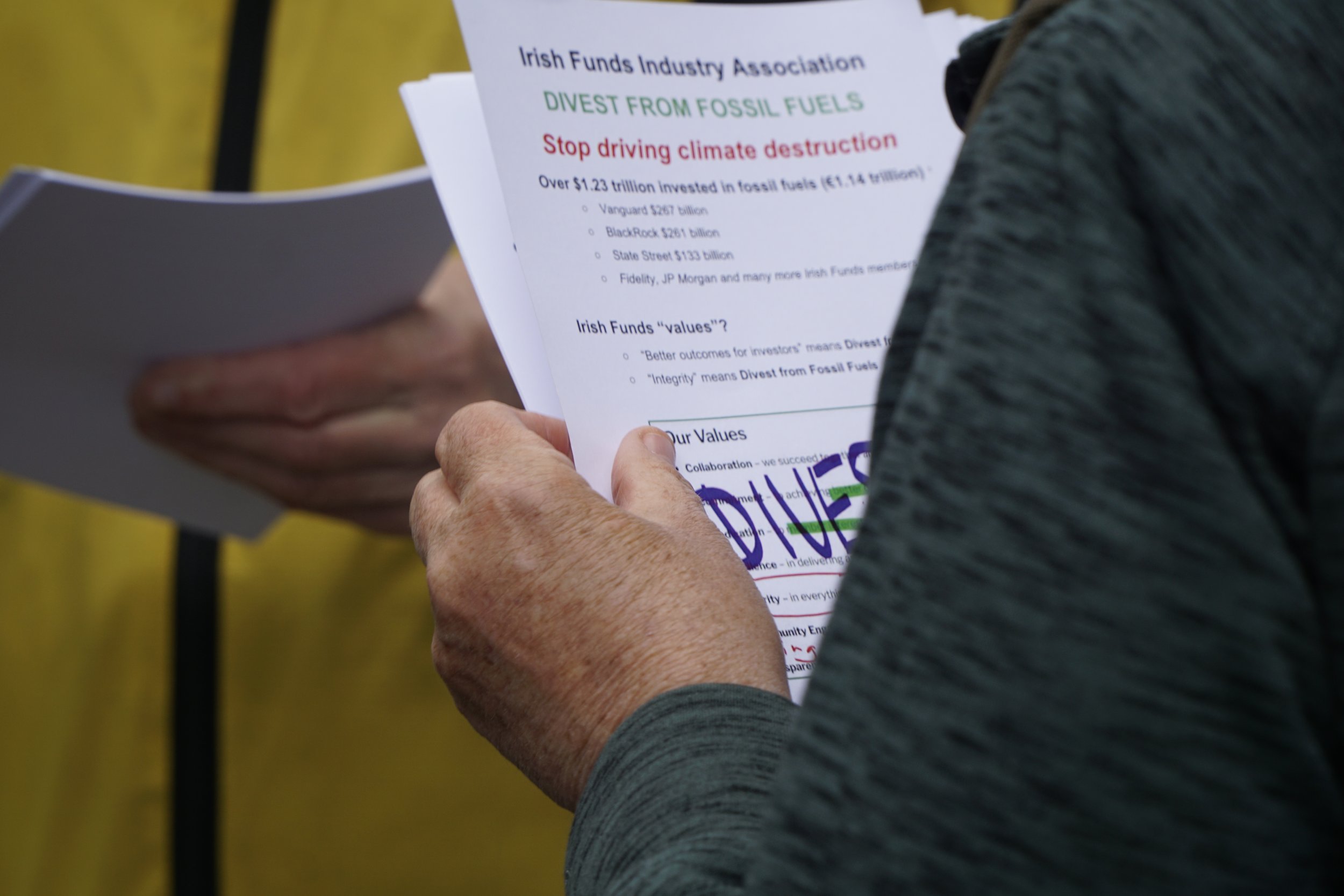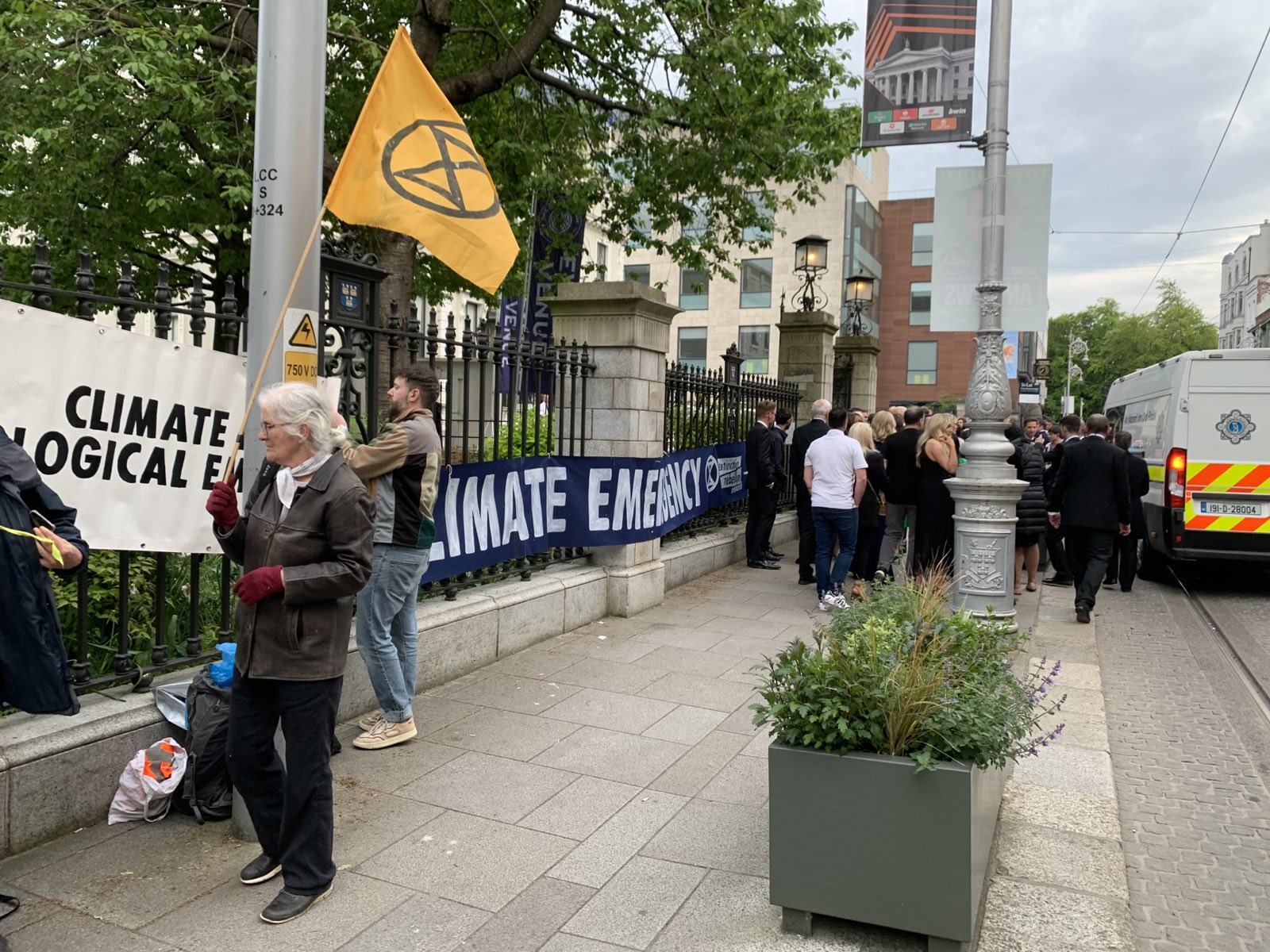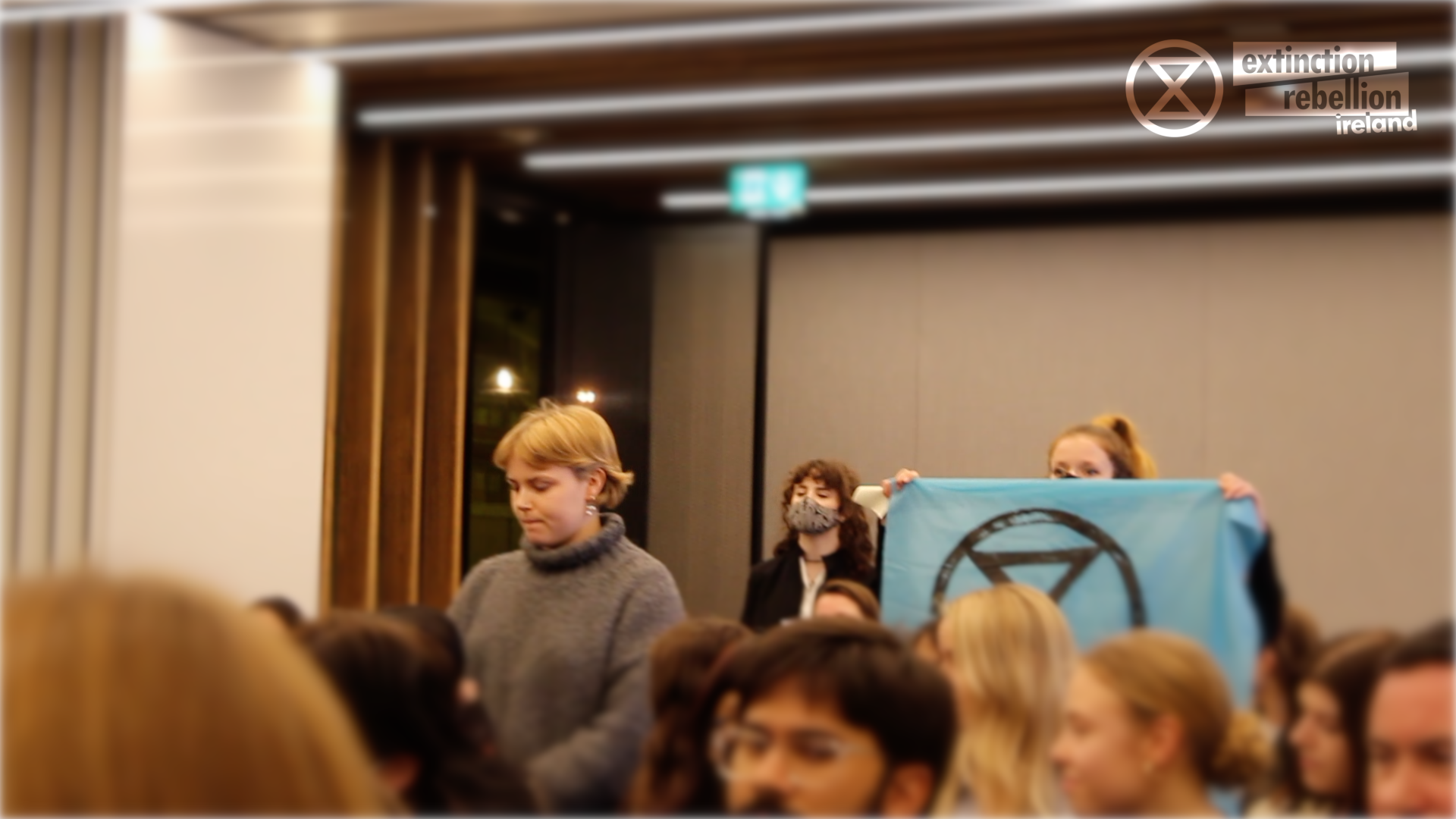By Ian Mac an G
On Sunday 22nd of September, members of Friends of the Earth Ireland, Extinction Rebellion Ireland, and Dundrum Climate Vigil met with Ugandan environmental and human rights defender Maxwell Atuhura. Maxwell's visit to Ireland was organized by Friends of the Earth to raise awareness and build solidarity between Ireland and Uganda on the fight against the East African crude oil pipeline (EACOP).
Maxwell is a member of the Ugandan non-profit TASHA which is currently fighting against EACOP - a project which has been in development since 2013 and is intended to carry crude oil about 1,445 km through Uganda and Tanzania to a port on the Indian Ocean. Maxwell, and activists like him, have suffered intimidation, harassment, and even imprisonment as a result of standing up to EACOP and its backers but refuses to be silenced.
Maxwell meeting up with activists at Dublin 8 coffee shop
Climate Change
We are in a climate emergency and any new fossil fuel project is a backward step, and another blow to our grievously wounded ecosystems. EACOP is expected to emit 379 million tonnes of CO2 over a 25-year period, according to a report by the Climate Accountability Institute, and has been described as ‘monstrous’, and a ‘carbon bomb. It is vital that we reduce our carbon emissions across the globe to save our future, but instead, this is a project that will worsen the climate crisis and the consequences for human beings and other species.
Environmental Degradation
We are already seeing the consequences of climate change in Ireland but it is far worse, currently, for vulnerable communities in the Global South, such as those in Uganda. The human cost of EACOP specifically is enormous, with Human Rights Watch estimating that tens of thousands are being impoverished by the project. The pipeline is also an immediate threat to the Murchison Falls National Park, Uganda’s oldest and largest national park and will result in major environmental degradation in what is a highly important and species-rich habitat and a major source of tourism.
Neo-Colonialism
EACOP is jointly owned by TotalEnergies, China National Offshore Oil Corporation, Uganda’s National Oil Company, and Tanzania. TotalEnergies, a French company is the majority owner (65% in 2021), meaning the majority of profits from this project will not stay in Uganda but will go to a company based in France, mirroring how wealth was extracted from Africa and funneled to European powers in the colonial era.
Solidarity from Ireland, and Europe
Amis de la Terre (Friends of the Earth, France), Survive, National Association of Professional Environmentalists (NAPE)/Friends of the Earth Uganda, Africa Institute for Energy Governance (AIEG), and TASHA have joined Maxwell Atuhura and 26 members of affected communities battling EACOP with a lawsuit against TotalEnergies in France. The 2017 Duty of Vigilance Law in France makes large French companies legally accountable for preventing human rights and environmental violations and this forms the basis of the lawsuit against TotalEnergies. An EU-wide directive on Corporate Sustainability Due Diligence entered into force this year.
Ireland is a member of the EU, and Irish citizens are EU citizens, represented by 13 Members of the European Parliament, and the EU Commissioner-designate for Democracy, Justice and rule of Law is the Fianna Fáil TD, Michael McGrath. Together we can pressure Irish and other European representatives to scrutinise EACOP and TotalEnergies, and similar projects and entities, in Ireland and abroad, to support environmental and human rights defenders like Maxwell Athura, to fight back against the fossil fuel industry and help save our futures!
Growing public awareness and pressure has already resulted in banks, investors, and insurers quitting the EACOP project. Last November, seven Extinction Rebellion Ireland activists travelled by bus and ferry to participate in the Oily Money Out protests in London which included huge, noisy protests against the financial backers of EACOP. We can all play a part in making this disastrous project unpopular, and unprofitable!
It’s not just the EACOP either, we in Ireland have our own fossil fuel project to fight against too! We continue to resist the ever-present threat of an LNG import terminal in our waters with the (much appreciated) solidarity of Irish and overseas groups - including Frack Action and Sane Energy, New York. We must continue to follow their example and stand together with people elsewhere in the world.
We need to bear in mind that the fight against new fossil fuel infrastructure is global. We need to say NO to fossil fuels in Ireland, in Uganda, and everywhere else! We need to rebel against extinction!
We need to fight for a safer, greener future for Maxwell Atuhura, for Ugandans, for ourselves, and for all life on Earth.





















